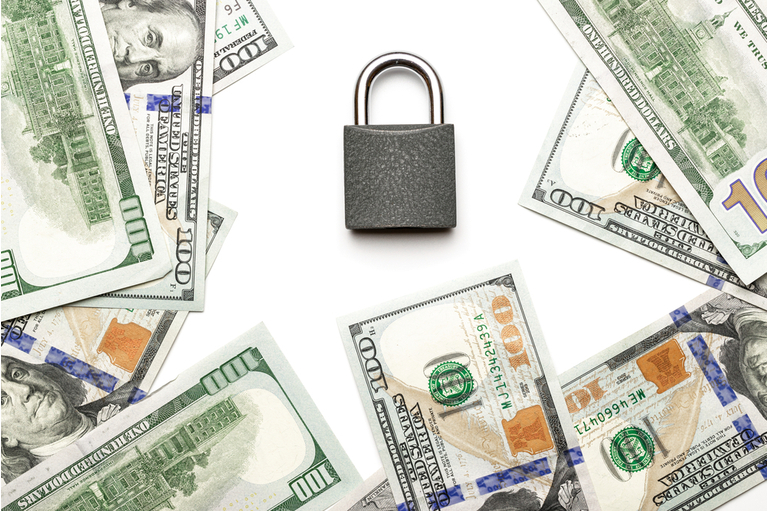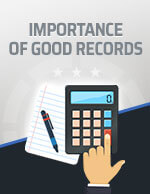
People say that nothing can be certain in life except for death and taxes. But is the second part true for gamblers?
More specifically, if you play at a casino and win, do you have to pay taxes?
It’s a tricky topic, and many people are unaware of how taxes work for gambling winnings and losses. In fact, many don’t even know whether they need to pay any taxes after gambling.
If you’re wondering the same, you’re in the right place. In this piece, I’ll give you definitive answers to these questions and more.
So, if you read until the end, you’ll know everything there is to know about taxes for casino players.
Do You Have to Pay Taxes at a Casino?
The simple answer is yes — you have to pay taxes for casino winnings, just like you do for most things in life.
- The money you win from gambling is considered a taxable income in the eyes of the IRS.
The same goes for any other fair market value of an item you’ve won by wagering or gambling.
This means that all winnings from casinos, tribal casinos, sports betting, or anything else are taxable. So, even if you play something as simple as the lottery, there are taxes to pay.
However, it’s not always as simple as that — there are rare instances when you don’t need to pay anything. Let’s explain what this means.
Taxable and Non-taxable Gambling Income

In most cases, the money won from gambling is taxable. This means you always have to report your winnings on your federal income tax returns.
The only exceptions are:
- However, these exceptions only occur when specific circumstances are met. This is a bit tricky, so it’s best to check with the IRS.
In general, you should assume that you have to pay taxes on all the money you’ve won. Mind you — you always have to report your gambling winnings, even if you don’t have to pay something in the end.
What About Gambling Losses?
When it comes to losses, you can report them as deductions and get tax cuts. However, to do this effectively, you’ll have to keep adequate records of both your winnings and losses.
You don’t want to make a mistake and get less in deductions, or worse, underreport your winnings and get in trouble with the IRS.
You’ll certainly fix the issue in the end, as it will only be a mistake, but why waste time when you don’t have to?
How Much Taxes Do You Pay on Casino Winnings?
In general, most gambling winnings come with a flat 24% tax rate.
However, if your winnings are higher than $5,000 or the payout is at least 300 times your bet, you could be subject to income tax withholding. In other words, the IRS will subtract that income from the taxes you owe, as long as you file it all correctly.
How to Pay Taxes on Gambling

Before paying your gambling taxes, you have to consider what you’re filing. I’ll try to explain how taxes work for both casino winnings and losses, but bear in mind that the two are always reported separately.
This means that you can’t subtract your losses from your winnings and then file the difference. You have to file the income and then claim deductions for the losses separately on your tax returns.
The process is slightly complicated, so make sure not to miss anything.
Filing Gambling Winnings
You have to file your gambling winnings as “other income” on Schedule 1 (Form 1040), right next to line 8.
- If you’re reporting winnings, file the exact amount you’ve won.
- If you’re reporting a non-money prize, put its fair market value.
In general, the payer of your winnings should give you the IRS Form W-2G, as long as:
- You’ve won more than $600
- The payout is at least 300 times bigger than the amount you’ve wagered
The reportable winnings are always listed in Box 1. Even if you don’t get this form, you’ll still have to report your income.
It’s important to mention that casinos only give these forms if you win more than:
For other casino games, you won’t get the W-2G form.
Furthermore, if you’re subject to tax withholding, the amount should be listed in Box 4 of the same W-2G form. That amount will be subtracted once you file your taxes for the year.
Deducting Gambling Losses
As I’ve previously explained, you can get deductions for your gambling losses. However, there are some differences in how filing works for professional and casual gamblers.
- If you are a professional gambler
You can deduct the losses as business expenses. You need to use Schedule C, and you don’t have to itemize every loss.
However, a loss is considered a business expense only if the primary purpose of your gambling is to make regular profits. If you gamble occasionally, this is not considered a business, so you can’t claim any deductions on business expenses.
- If you’re not a professional gambler
In this case, you can still deduct gambling losses, but you’ll have to itemize them. You also need to claim these itemized deductions using Schedule A.
Bear in mind that you can’t deduct more than the amount you’ve won. So, if you win $1,000 and garner losses amounting to $3,000 on other wagers, you will only be able to deduct from the first $1,000 you’ve lost.
To make things worse, ever since the 2017 Tax Cuts came into effect, the deductions have significantly changed, and it’s now rarely worth it to itemize your gambling losses. In fact, most gamblers don’t.
Importance of Keeping Good Records of Gambling Activities

Filing taxes for your winnings and claiming deductions is practically impossible if you don’t keep records of your gambling activities.
That’s why I can’t stress enough how important it is to do this. Even the IRS suggests so — therefore, you can be certain that it’s vital.
For the records to be adequate, you need to include:
- Dates when you won and lost money gambling
- Types of gambling activities you participated in
- Names and addresses or locations of the casinos where you played the games
- Amounts you either won or lost
- Proof of what you did (bank withdrawals, statements, W-2G forms, etc.)
What About Nonresident Aliens?
Nonresidents who need to file a tax return for gambling winnings in the US can do so using Form 1040-NR.
However, in most cases, nonresidents of the United States who are not from Canada cannot deduct their gambling losses.
Final Word
As you can see, there’s a lot you need to know about taxes on casino winnings.
- The most important thing you need to remember is that all gambling winnings need to be reported, even if the taxes you have to pay on them are not high enough to burden you in any significant way.
It’s still important to file everything correctly, so make sure you do this if you want to keep on having fun without worrying about the IRS.

